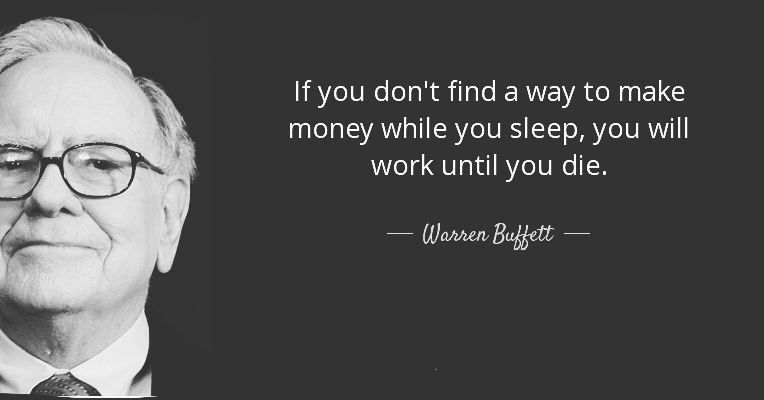
Welcome to WinnerTrick.com — the best source for success and personal development articles, motivational quotes, and tips to live your best life.
contact@winnertrick.com
“I’ve got an idea,” my business partner said over the phone. “Let’s make $10,000 over the Labor Day weekend.”
He wasn’t suggesting we play the lottery or flip a house. He had a plan: a new writing course that we’d develop and sell online. As soon as he finished laying out the basics, two things hit me. First—I believed we could do it. Second—I realized he thought about money differently than most people.
He didn’t say, “We need to make $10,000,” or “I hope we can.” He said, “I want to.” Just that shift—turning money into a creative target instead of a survival necessity—changed the entire energy of the conversation.
And that’s when I saw it clearly: there’s a narrow mental line between financial struggle and real wealth. Most people never cross it because they’ve never learned how to think like someone who builds wealth from scratch.
That’s what this guide is for.
This isn’t a casual motivational read or a list of get-rich-quick tricks. It’s a complete playbook for changing how you think, act, and grow when it comes to money.
Here’s what’s ahead:
How to detect and rewrite toxic beliefs around wealth
A strategic, practical way to clear debt and avoid falling into its traps again
Daily financial habits that mirror those used by the truly wealthy
The tools and mindset you need to turn money into something that works for you—rather than you always working for it
If you commit to these ideas, your finances won’t just improve—they’ll evolve. You’ll stop chasing money, and start attracting it.

“If you do not see great riches in your imagination, you will never see them in your bank balance.” —Napoleon Hill
Why is it that so many smart, hardworking people never achieve financial security—let alone abundance?
It’s not because of lack of opportunity or intelligence. It’s the quiet voice in their head constantly whispering scarcity. The worry they carry into each day. The reflexive fear of “not enough.”
If you want to permanently change your financial trajectory, it won’t begin with a new budget or side hustle. It begins in your mind—with the decision to unlearn everything that’s kept you financially stuck.
This is the starting point of the Abundance Mindset.
“It’s more work to not succeed than it is to succeed.” —Grant Cardone
If you were raised to fear money problems, you probably know that low buzz of anxiety that hums just under the surface. The one that flares up at unexpected bills. That sneaky pressure in your chest when your car needs a costly repair, or your rent is due, and payday feels like forever away.
This is what I call Money Panic. It’s exhausting—and it’s everywhere.
Money Panic doesn’t just rob you of peace. It damages your creativity, your energy, and your willingness to take risks. It turns money into a monster that follows you everywhere. Ironically, this fear-based thinking is often the very thing keeping wealth out of your life.
And like any deep emotional pattern, it takes conscious mental rewiring to undo it.
“We tend to be identical to one or a combination of our parents in the arena of money.” —T. Harv Eker
Let’s be honest. Most of us didn’t get a useful financial education growing up. What we got instead were hand-me-down beliefs—often built around fear, guilt, or limitation.
Phrases like “We can’t afford it” or “Money changes people” become etched into our identity.
Now imagine being raised to believe water is dangerous. You’d hesitate to swim even if the ocean was calm and beautiful. That’s how many of us were taught to relate to money: with fear, caution, and guilt.
Until you confront the money messages you absorbed as a child, they will run your adult financial life.

“Identity is this incredible invisible force that controls your whole life. It’s invisible, like gravity is invisible, but it controls your whole life.” —Tony Robbins
Our actions always reflect who we believe we are. Think you’re terrible with money? That belief shows up in your bank account. Think you’ll never be wealthy? That mindset will quietly sabotage opportunities, risks, and growth.
If you want to start building true financial stability and eventual abundance, you must first change who you believe yourself to be. Not with wishful thinking—but through mental restructuring. You have to stop identifying with the broke, worried version of yourself, and step into the mindset of a resourceful, capable creator of wealth.
Here are five questions to help guide that transformation.
Dig into your assumptions. What hidden ideas are you still carrying that make wealth feel unreachable or wrong? Maybe you believe that money corrupts. Or that having money will make you arrogant, or less “real.” Maybe wealth feels unattainable because of where you grew up or the company you keep.
Track your language. Phrases like “I can’t afford that” shut down the brain’s problem-solving system. Instead, try asking, “How could I afford it someday?” That tiny shift keeps your financial imagination alive—and opens new paths forward.
This question makes people squirm. Most don’t feel deserving of financial success. They believe they need to be smarter, more talented, more charismatic, more educated—before they’ll ever “deserve” wealth.
Write out reasons you are worthy of money right now. Maybe you’re honest. Maybe you’re a hard worker. Maybe you’ve been quietly supporting others for years without recognition. Or maybe, just maybe, your worth isn’t conditional at all.
Think beyond the bills. Imagine waking up with zero anxiety about money. What would shift in your personality? Your health? Your relationships? What dreams would suddenly feel possible?
Many people don’t realize how tightly their identity is tied to survival mode. Remove that pressure, and a new version of you may rise—a lighter, more expressive, more generous you.
This isn’t just about you. Wealth gives you the power to uplift others. Could you send your parents on a long-overdue vacation? Fund your child's education? Contribute to causes you care about in a real, meaningful way?
Finding a purpose larger than yourself is one of the most powerful ways to unlock financial motivation. It’s not just about what you’ll gain—it’s about who you’ll elevate along the way.
We tend to focus on what we lack. But what about the gifts money has already brought into your life? Safe shelter. Daily meals. Technology that connects you to the world. Books, hobbies, education, clothes, medicine.
List them. Every item. Every experience. Every comfort. Gratitude isn’t just a spiritual cliché—it’s a neurological tool. The more you appreciate what you already have, the more likely you are to receive more.
“The truth is that there’s more than enough good to go around.” —Michael Beckwith
This is where everything starts to flip: Most people believe that wealth is limited. That for someone to win, someone else has to lose. This thinking is rooted in scarcity and creates tension, guilt, and competition.
But wealth doesn’t work that way.
Money isn’t a finite pie that gets smaller every time someone takes a slice. In reality, money is generated—by solving problems, meeting needs, and creating value. When you launch a product, sell a service, or even brighten someone’s day in exchange for payment, you’re not stealing from someone—you’re participating in the ongoing expansion of the economy.
Understanding this truth liberates you. It shifts you from hoarding to building, from comparison to creativity.

“You owe me one.”
There’s an uneasiness in that sentence, isn’t there? That subtle pull of obligation. It’s hardwired into us. Humans evolved in tight-knit communities where mutual support was key to survival. Debt—emotional or financial—triggers that primal discomfort.
Now, when we talk about monetary debt, that discomfort comes with real weight: mounting interest, mounting pressure, and mounting stress. Carrying debt doesn’t just affect your bank balance—it corrodes your peace of mind and clips the wings of your potential.
If you’re serious about creating lasting wealth, then breaking free from debt must be your first major leap.
Not all debt is created equal.
Bad debt—often known as consumer debt—is what you rack up when you finance lifestyles you haven’t earned yet. Credit cards used for luxury clothes, gadgets, restaurants, or even unnecessary car payments all fall into this category. These debts don’t generate anything in return; they quietly drain your resources month after month.
On the flip side, good debt can actually help build your future. A home mortgage (when carefully considered), an educational loan that leads to higher earnings, or a business loan that funds a scalable project—these forms of debt can yield a long-term positive return. They’re calculated risks, not careless decisions.
Before taking on any debt, ask: “Will this cost me more than it gives back?” That’s your filter.
“Whatever your income, always live below your means.” —Thomas J. Stanley
Living beyond your means is easier now than ever. Credit is handed out like candy. Advertisements push the illusion that success means having what you want now, regardless of whether you’ve earned it.
This is where many fall into the trap. You start financing things that only serve your ego—not your future. A new phone on a plan that stretches your budget. A car that looks good on Instagram but eats away at your savings. A trip that you’ll be paying for six months after the tan fades.
The fix? Simple—but not easy. Spend less than you earn. Build a buffer for emergencies. Respect your future self enough to delay gratification.
“Whatever interest rate you have… that’s your immediate return.” —Mark Cuban
Let’s get practical. If you have $1,000 sitting in your account, what’s the best use of it?
Investing sounds smart. Maybe you’ve been told to start putting money into mutual funds or stocks. But if you’re carrying credit card debt with a 20% interest rate, that investment—no matter how promising—is doing less for you than simply eliminating your debt.
Put differently: Paying off high-interest debt is an investment. It offers a guaranteed return. One that’s usually higher than what the market can deliver.
Once you’ve wiped out that burden, then you can explore true investments with more freedom and far less risk.
If the idea of waiting years to be debt-free before you do anything enjoyable feels crushing, there’s an alternative. A balanced strategy that lets you heal your finances and your mindset at the same time.
Live by the 70-20-10 rule:
70% of your income goes toward daily living expenses.
20% gets dedicated to debt repayment.
10% is yours to save or invest for long-term growth.
This setup lets you chip away at debt, maintain your dignity, and start planting seeds for your financial future—all at once.

“Wealth beyond your wildest dreams is possible if you follow the golden rule: Invest ten percent of all you make for long-term growth.” —David Chilton, The Wealthy Barber
Once your mindset is strong and your debt is under control, you reach the most empowering stage: creating money intentionally. This doesn’t mean hoping to win the lottery or waiting for a miracle—it means deliberately crafting your habits to generate and grow wealth over time.
The wealthy don’t get there by chance. They build systems. They follow rituals. They make decisions that compound. It’s time you did the same.
This is the rule. Everything else builds on it.
When your paycheck arrives, before you pay the landlord, buy groceries, or treat yourself to anything, take a chunk—10% minimum—and set it aside for yourself. Not for spending. Not for emergencies. For building.
This habit turns your income into your employee. You’re hiring your dollars to go to work for your future. Over time, this simple action snowballs. Interest compounds. Investments grow. Eventually, your savings will start producing more income than your job.
It’s slow at first. But stick with it, and it becomes the most powerful financial decision you ever make.
“RICH: Able to afford all the things and experiences required to fully experience your most authentic life.” —Jen Sincero
Wanting money isn’t enough. Wanting isn’t a strategy. Most people vaguely want “more,” but they never define why. That’s why their drive fizzles out.
The people who build lasting wealth have clarity. They know exactly what they’re working toward. A home for their family. Freedom to travel. Helping loved ones. Starting a passion project.
The clearer your “why,” the stronger your drive. If your goals stir emotion—if they light a fire in your chest—you’ll stop giving up when things get hard.
Tip: Go experience the thing you want. Test drive the car. Visit your dream neighborhood. Look at travel videos. When you get a taste, your subconscious starts chasing it with purpose.
“Money often costs too much.” —Ralph Waldo Emerson
You say you want to be rich. But how much money does that really take?
Many people assume wealth means billions. But that’s rarely necessary. Most of your dreams—comfortable living, travel, generosity, freedom—can be achieved on far less. Maybe $5 million. Maybe even $1 million.
Add it up:
The kind of home you want.
The vacations you’ll take.
The lifestyle upgrades you crave.
The legacy you hope to leave.
When you attach numbers to your vision, it stops being fantasy and starts becoming a plan. And if that plan looks reachable, you’ll chase it with more clarity and less overwhelm.
“If you want to change your life, you have to raise your standards.” —Tony Robbins
This isn’t a goals list or a bucket list. It’s a lifestyle boost list. What would truly improve your daily life right now?
A new mattress for better sleep. Quality cookware to enjoy making meals. A personal trainer. Noise-canceling headphones. New bedding. A laptop that doesn’t crash every hour.
Post this list on your fridge. Use it as a reminder of the little things that wealth can unlock. These aren’t luxuries—they’re elevations. When your environment upgrades, so does your energy, your productivity, and your self-worth.
And that creates a cycle: better self-image, better habits, better income.

“You are the average of the five people you spend the most time with.” —Jim Rohn
We pick up the behaviors, beliefs, and standards of the people around us. If you’re surrounded by folks who treat money casually, constantly complain about finances, or mock ambition—you’ll unconsciously adopt the same ceiling.
This doesn’t mean cutting people off. It means expanding your circle.
Find people who are ahead of you. Mentors. Builders. Strategic thinkers. People who talk about ideas, not just bills. People who invest in themselves. People who think long-term.
Being around those who are winning financially will stretch your vision. You’ll start expecting more from yourself—and seeing more possibilities than you ever imagined.

“If I have to work there, it’s not a business. It becomes my job.” —Robert Kiyosaki, Rich Dad Poor Dad
Here’s the honest truth: most people are taught to work for money. Trade hours for a paycheck. Show up, punch in, repeat.
But that path has limits. You only have so many hours. And if you ever stop working, the money stops, too.
Wealthy people flip the script. They don’t just work for money—they build systems where money works for them. This is the cornerstone of financial independence: shifting from active income to passive income.
Let’s break down how that happens.
This might sound basic, but most people still get it wrong.
Assets put money into your pocket. Liabilities take money out.
Your personal home? Unless it’s generating rental income or cash flow, it’s a liability. It costs you in taxes, maintenance, upgrades, and interest. Your car? Same thing. It depreciates every time you turn the key.
Now compare that with:
A rental property that generates monthly income
A vending machine in a high-traffic area
A royalty-generating song or book
A dividend-paying investment
These things earn while you sleep. That’s what makes them assets.
To grow wealthy, spend your time and money acquiring income-producing assets, not fancy status symbols.
“If you want to become really wealthy, you must have your money work for you.” —John D. Rockefeller
Active income is finite. It ends when you stop working.
Passive income, on the other hand, is generated by systems, products, or investments that don’t rely on your constant effort. Once you build or buy the asset, it continues to generate revenue.
Some examples:
Online courses or ebooks
Licensing a product or creative work
Stock dividends and real estate income
Subscription-based services
Recurring income is a subset of passive income that arrives on a regular basis. Rent checks. Memberships. Royalties.
If you want to stop living paycheck to paycheck, start asking yourself: “What can I create, launch, or invest in that earns while I rest?”
That’s the question that leads to financial freedom.

“It’s not how much money you make, but how much money you keep, how hard it works for you, and how many generations you keep it for.” —Robert Kiyosaki
Investing is not just for Wall Street. It’s for anyone who wants to build wealth quietly, consistently, and strategically.
That said—don’t fall for the noise. Most of the investing advice out there is designed to keep you paying fees, not to grow your money.
Let’s get clear on how to actually invest smartly.
“When you look at the results… there’s almost no chance that you end up beating the index fund.” —David Swensen
Index funds are one of the simplest and safest investment vehicles for everyday investors. Rather than trying to pick winning stocks, you buy a tiny piece of the entire market—like the S&P 500.
Why is this powerful?
Index funds historically beat the majority of actively managed funds
They come with very low fees
They require almost no effort to maintain
Instead of speculating, you’re investing in the overall economy’s long-term growth. And history shows: over time, it grows.
“Rule No. 1: Never lose money. Rule No. 2: Never forget rule No. 1.” —Warren Buffett
No matter how confident you are in your strategy, you should never go all-in on a single investment. Diversification spreads your risk and protects your wealth.
A balanced example (inspired by Ray Dalio):
30% stocks
40% long-term bonds
15% mid-term bonds
7.5% gold
7.5% commodities
This isn’t one-size-fits-all, but it shows the principle: blend risk and stability. Young investors may take on more risk. Others may prioritize preservation. But the point is to balance.
Even better—automate your investing. Set it and forget it. Let your wealth grow while you focus on living.

“The best investment on earth is earth.” —Louis Glickman
Real estate isn’t just about buying your dream home. In fact, your home is often more of a liability than an investment—unless you’re renting part of it out or flipping it for profit.
What we’re talking about here is income-generating property. Rental units, duplexes, even small commercial spaces that produce steady, predictable cash flow every month.
Take it from personal experience: years ago, I purchased a modest home and converted part of it into a rental suite. That one move didn’t just offset the mortgage—it also gave me financial breathing room and long-term equity growth.
The value of the property went up, yes—but more importantly, it paid me every single month. That’s the magic of real estate done right.
Just make sure you treat it like a business. Crunch the numbers, know your responsibilities, and don’t bank on quick flips unless you know the game.
“When riches begin to come, they come so quickly, in such great abundance, that one wonders where they have been hiding all those years.” —Napoleon Hill
The writing course my business partner and I created didn’t exist a month before we launched it. We imagined it, planned it, built it, and delivered it—within a weekend. That single idea didn’t just generate income—it turned into a digital product that now earns money long after we stopped working on it.
That’s the new model.
That’s wealth creation.
Not chasing pennies. Not working overtime just to breathe.
But using your mind, your skills, and your creativity to build value, then letting that value continue working for you.
If you’ve grown up hearing “we can’t afford it,” here’s your invitation to start rewriting that script.
You can afford it.
You can build it.
You can create the wealth you’ve been seeking—by starting with your thoughts, building the habits, and investing in assets that never sleep.
The journey begins not with a lottery ticket, but with a decision. So make that decision now. And take the first step forward into the life you’ve imagined.
Make sure you enter all the required information, indicated by an asterisk (*). HTML code is not allowed.